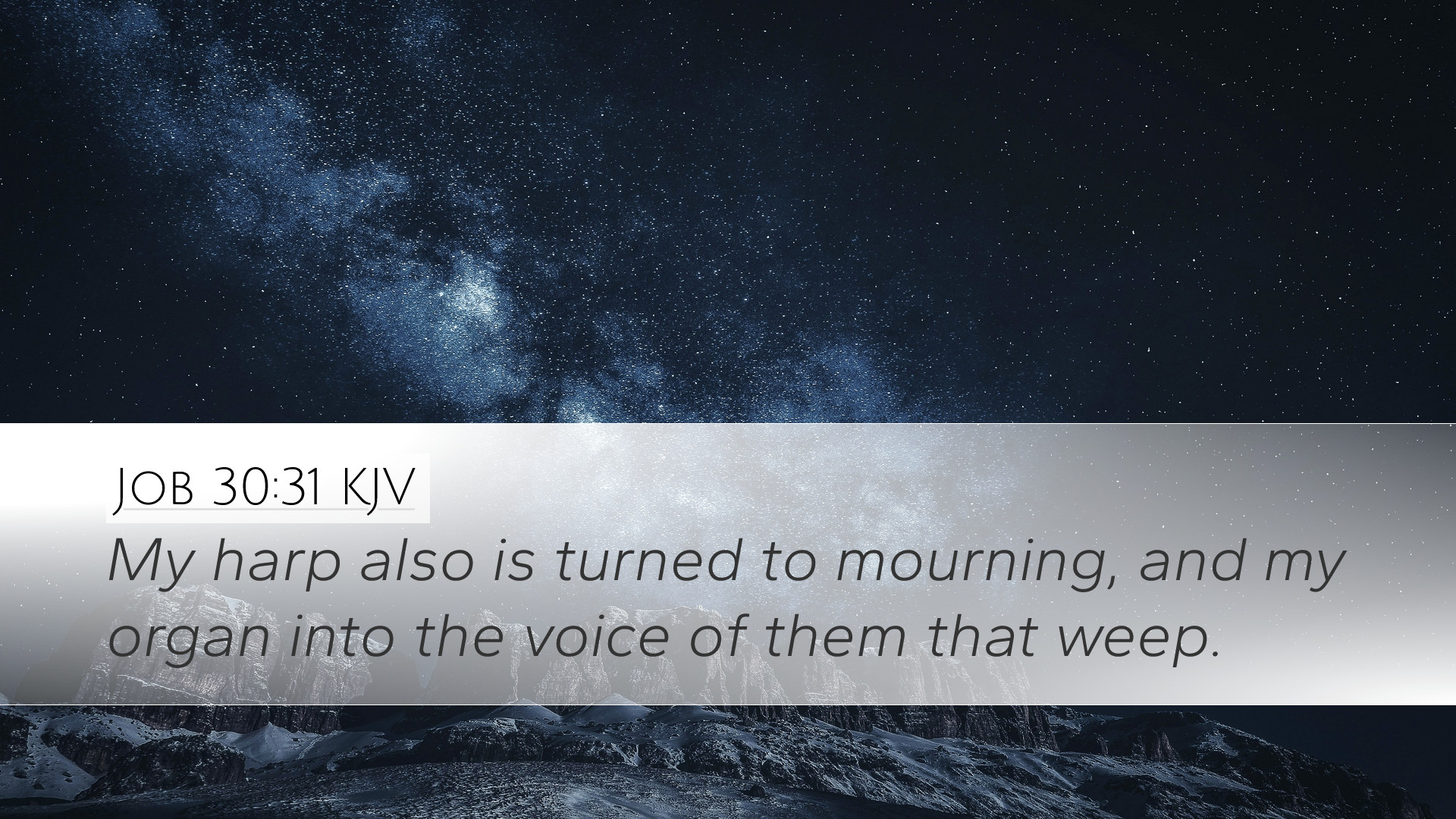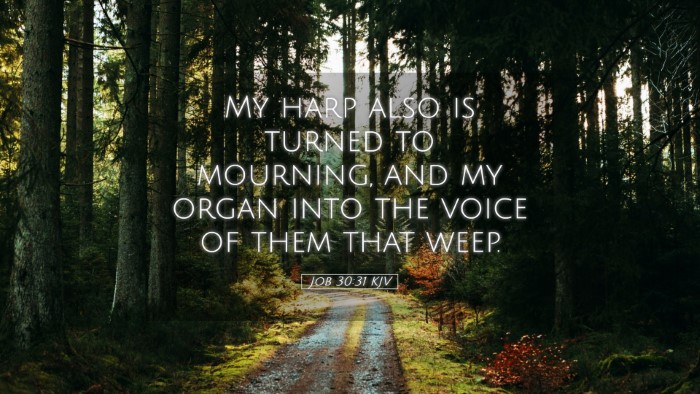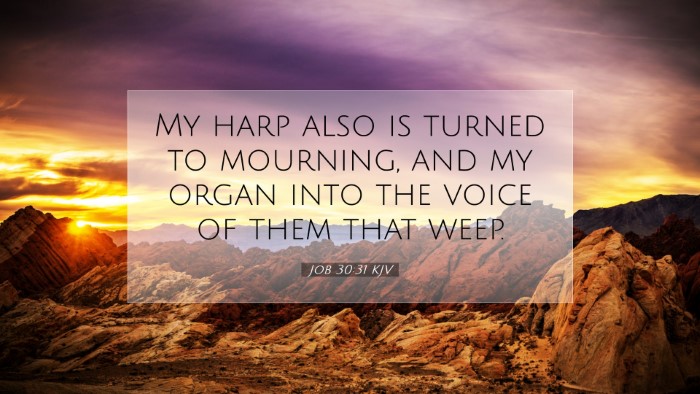Commentary on Job 30:31
Bible Verse: Job 30:31 (KJV) - "My harp also is turned to mourning, and my organ into the voice of them that weep."
Introduction
The verse from Job 30:31 captures a profound moment of despair in the life of Job, showcasing the transition from joy to sorrow. The imagery of musical instruments, once symbols of celebration, now reflects deep mourning and sadness. This commentary aims to delve into the theological, literary, and emotional aspects of this verse by drawing insights from esteemed public domain commentaries.
Contextual Background
The Book of Job addresses the theme of human suffering and divine justice. Job, a man of integrity and faith, experiences inexplicable suffering. In this chapter, he laments the drastic change in his fortune, moving from a life of abundance to one characterized by loss and grief. Understanding the socio-cultural and literary context of this verse is crucial for interpretation.
The Suffering of Job
Job's expressions of pain are not merely individual grievances but reflect a larger existential crisis. He finds himself in a position where his past joys are overshadowed by present sufferings. This duality of life is echoed in the commentary by Matthew Henry, who emphasizes that those who have known joy may also know profound sorrow. His reflections serve to remind us that both joy and mourning are part of the human experience.
Verse Analysis
The verse in question depicts Job’s sorrow through specific musical metaphors:
- My harp also is turned to mourning: The harp, often associated with joy and celebration, symbolizes the joyful past of Job's life. In the midst of suffering, it becomes an instrument of mourning, portraying the depth of his despair.
- My organ into the voice of them that weep: The organ, known for its majestic and powerful sound, now resonates with the weeping and lamentation of those around him. The transformation of these instruments illustrates the comprehensive nature of Job's sorrow.
Mystical and Poetic Dimensions
Adam Clarke remarks on the poetic nature of Job's lamentation. The use of musical imagery emphasizes the emotional weight carried throughout this passage. Music in antiquity was not just entertainment but a medium for expressing the deepest human experiences. Clarke highlights how the shift from music to the 'voice of them that weep' poignantly captures the soul's transition from grace to grief.
Theological Implications
This verse raises important theological questions regarding suffering, divine justice, and human emotion. Commentaries from both Albert Barnes and Matthew Henry provide insights into the nature of God amidst human suffering. They argue that God is intimately aware of our trials and never abandons His people in their moments of distress.
Understanding Suffering
Job's lament serves as a reminder for believers that suffering is a part of the Christian journey, deserving of both recognition and exploration. Henry asserts that while God may seem silent, His presence is felt in the depths of our sorrow. This echoes the sentiments found in many biblical texts where suffering serves a greater purpose—not merely as punishment but as a means to refine faith.
Applications for Believers
This verse encourages reflection on the dual aspects of life—the interplay between joy and sorrow. Here are some applications for pastors, theologians, and students:
- Emotional Honesty: Believers are encouraged to be open about their suffering. Just as Job expressed his anguish, so should we acknowledge our struggles before God.
- The Role of Music in Worship: The transition from instruments of joy to mourning highlights the importance of music in various life stages. Worship may not always be celebratory and it's essential to allow space for lament.
- Community in Suffering: Job's context underscores the significance of community during trials. Churches must foster environments where grief can be shared and addressed together.
- Faith Amidst Doubt: Job's situation challenges believers to maintain faith even in the darkest moments. This necessitates a mature understanding of God's character and His sovereignty in trials.
Conclusion
Job 30:31 is a poignant reminder of the depths of human emotion and the reality of suffering. Through the insights of public domain commentaries, we gain a greater understanding of the complexity of this verse and the broader themes it encapsulates—suffering, divine justice, and the transformative nature of faith.
As we reflect upon Job's words as both historical text and a living expression, may we find meaningful applications and insights that draw us nearer to the heart of God amidst our own life experiences.


